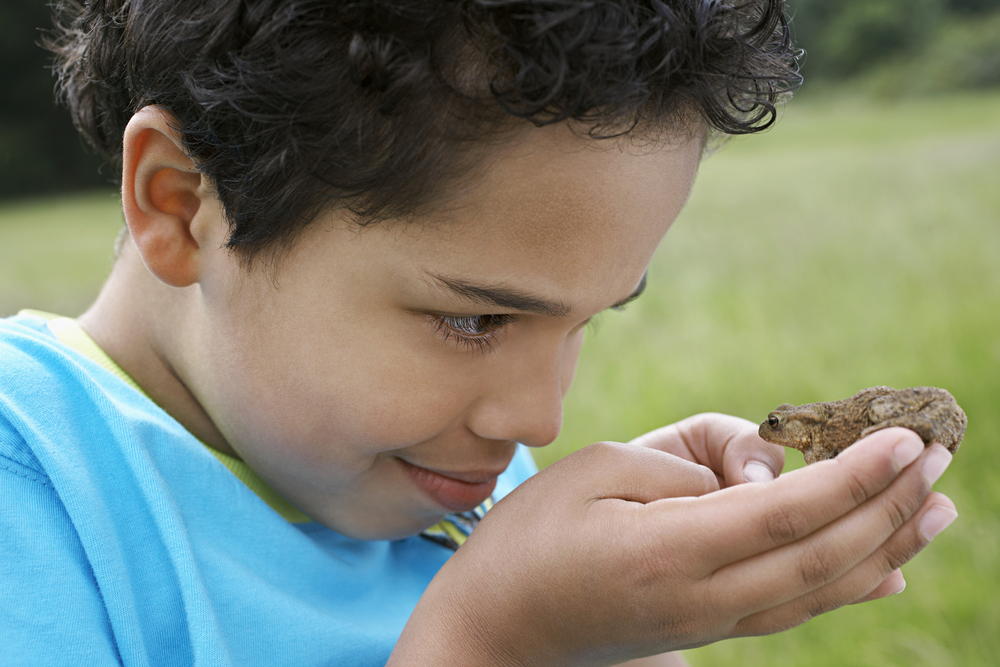Analytical skills Easy Worksheets for Ages 4-9
4 filtered results
-
From - To
Welcome to our "Analytical Skills Easy Worksheets for Ages 4-9" resource! Designed to boost your child's critical thinking and problem-solving abilities, these engaging worksheets offer a fun and interactive way for young learners to develop important analytical skills. Featuring colorful illustrations and age-appropriate activities, children will explore patterns, sequencing, and logical reasoning through puzzles, games, and creative exercises. Our worksheets are perfect for parents, teachers, and caregivers aiming to enhance children's cognitive development in a playful manner. Visit us to download these valuable resources today and give your child the tools they need for a successful future!
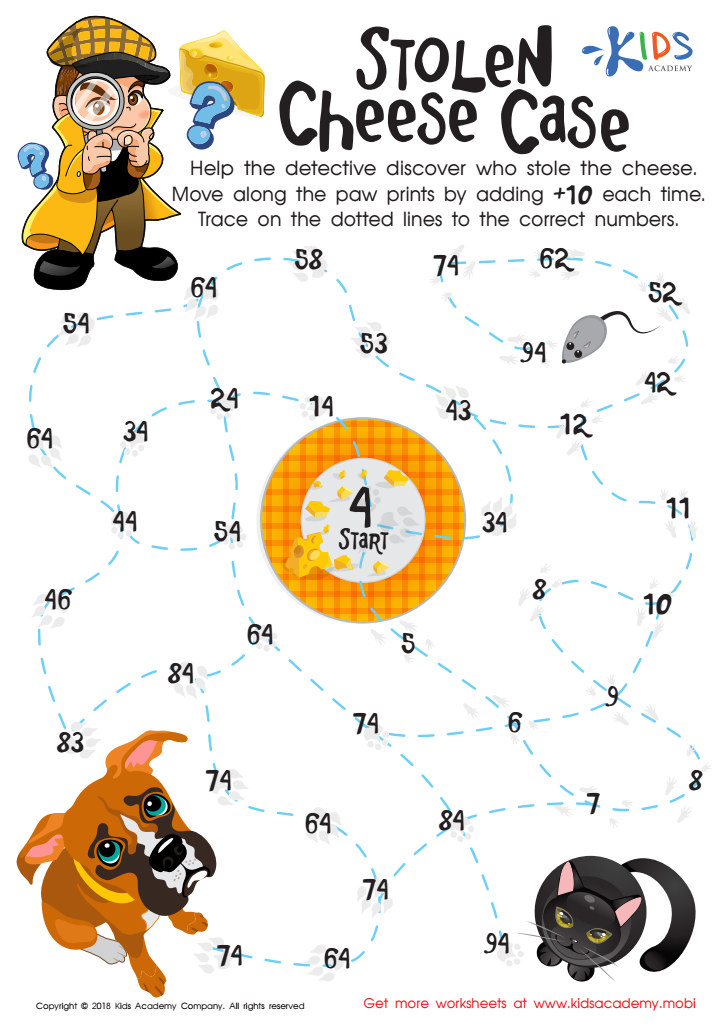

Stolen Cheese Case Maze Worksheet
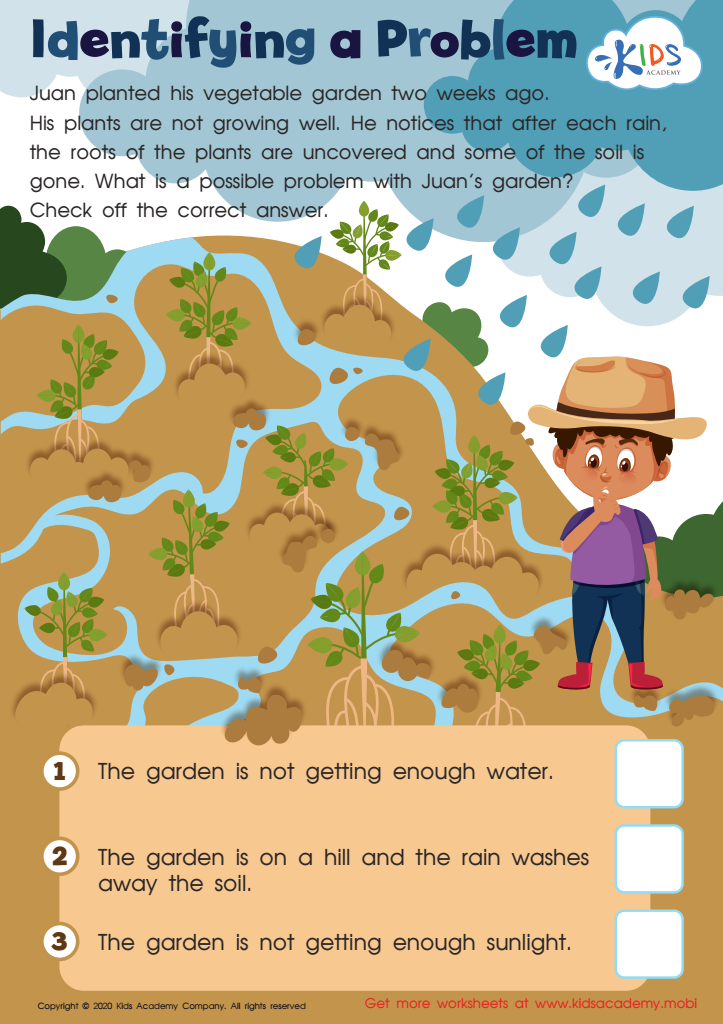

Identifying a Problem Worksheet
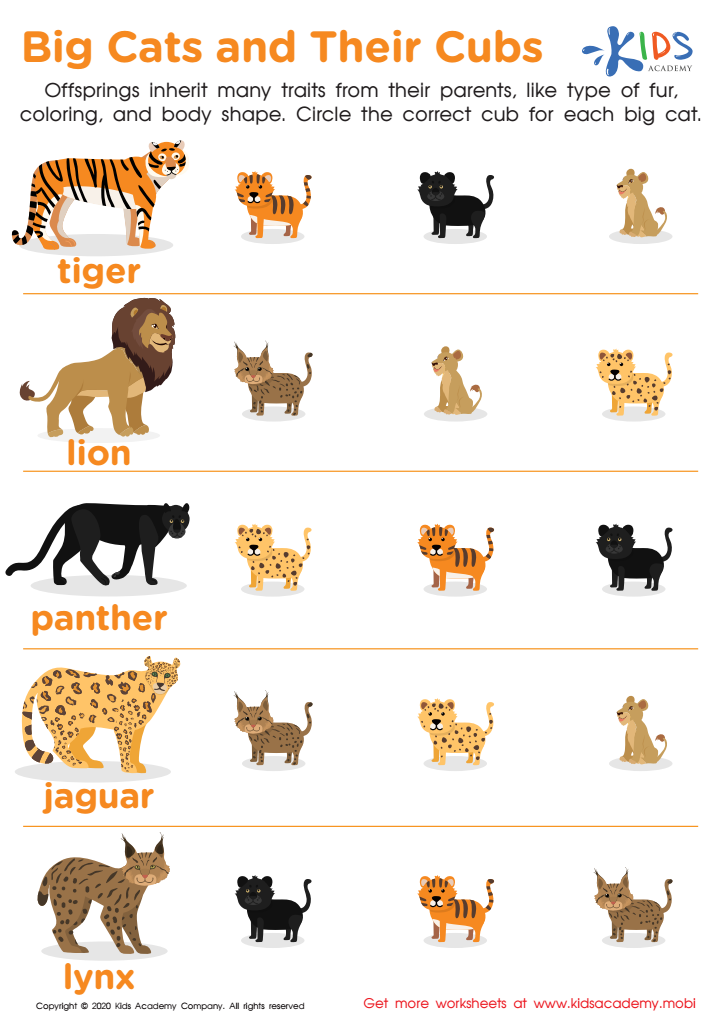

Big Cats and Their Cubs Worksheet
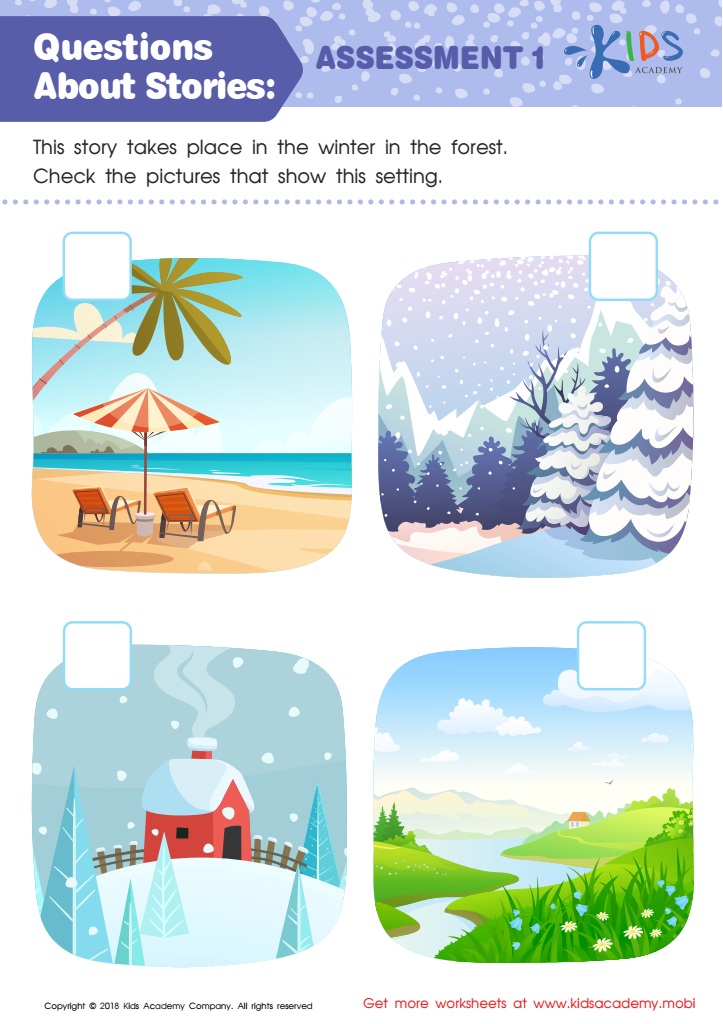

Questions About Stories: Assessment 1 Worksheet
Analytical skills are essential for children aged 4-9, and both parents and teachers should prioritize developing these skills for several reasons. Firstly, analytical skills help children make sense of the world around them. By teaching kids to observe, compare, and categorize things, they learn to solve problems and think critically.
Moreover, strong analytical skills lay the foundation for effective decision-making. When children learn to analyze information, they become better equipped to evaluate options, understand consequences, and choose wisely. For example, this could help them in navigating friendships, resolving conflicts, or selecting appropriate books to read.
Additionally, engaging in activities that promote analytical thinking—such as puzzles, games, and hands-on learning—can enhance children’s cognitive development. Activities like these not only make learning fun but also improve focus and perseverance.
Lastly, developing these skills at a young age prepares children for future academic success. As they progress in school, analytical skills become increasingly important in subjects like math, science, and reading comprehension. Therefore, fostering analytical skills early on equips children for challenges ahead and supports lifelong learning. Parents and teachers can make a significant impact by incorporating analytical activities into everyday experiences.
 Assign to My Students
Assign to My Students





.jpg)


